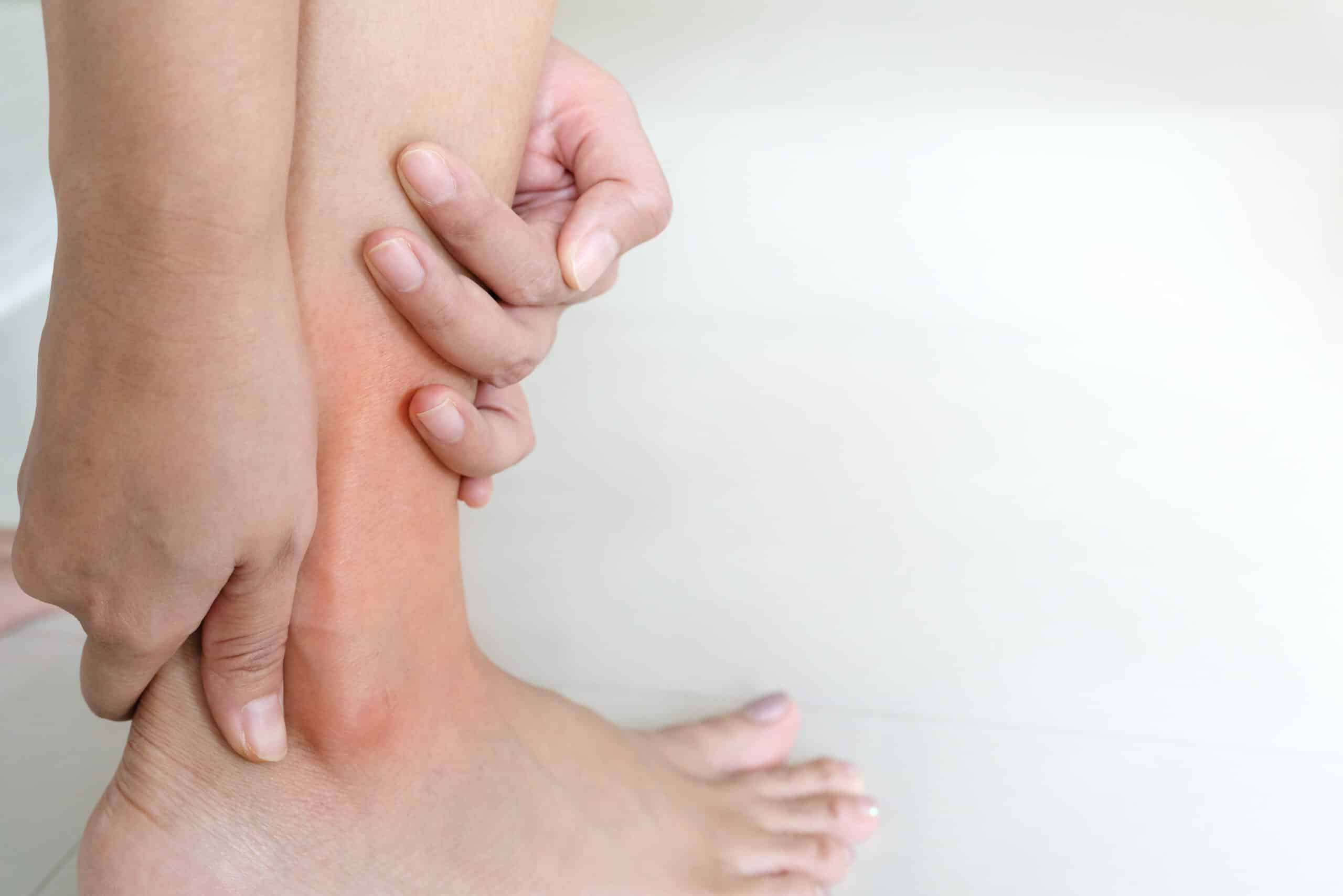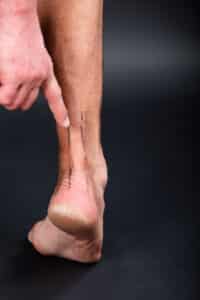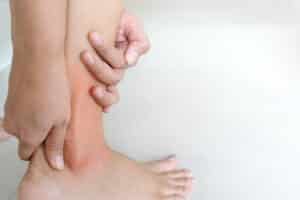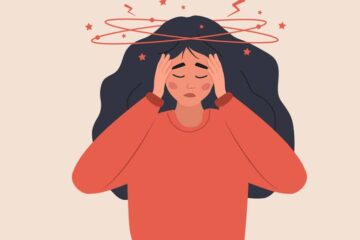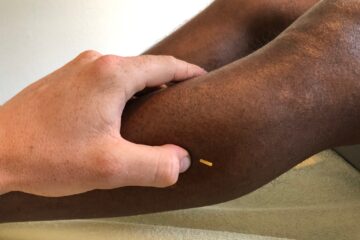Achilles tendon pain
Achilles tendon pain: causes, symptoms and treatment options
What is Achilles tendon pain?
The Achilles tendon is one of the strongest and most important tendons in the human body. It connects the calf muscles to the heel bone and enables us to walk, run and jump. Achilles tendon pain are complaints that occur in this tendon, often due to overuse or injury. It can often also be referred to as Achillodynia or Achilles tendinitis described.
Satisfied customers Physiotherapy Waidfuss in Wipkingen
Causes of Achilles tendon pain (Achillodynia or Achilles tendinitis)
Achilles tendon pain can be caused by various factors:
Overload: Particularly in sports such as running, jumping or soccer, constant strain can lead to small tears in the tendon structure.
Insufficient warm-up: Insufficient warm-up before physical activity increases the risk of tendon injuries.
Misalignments and incorrect loading: Problems such as flat feet or incorrect footwear can put additional strain on the Achilles tendon.
Aging processes: With increasing age, the Achilles tendon loses elasticity, which makes it more susceptible to injury.
Symptoms of Achilles tendon pain
The symptoms of Achilles tendon pain can vary, but typically include:
- Pain and stiffness: Pain and stiffness can occur in the Achilles tendon area, particularly in the morning or after long periods of rest.
- Swelling and redness: An inflamed Achilles tendon can be swollen and reddened. Also known as Achillodynia.
- Sensitivity: The Achilles tendon can react sensitively to pressure.
- Limited mobility: Restricted movement of the ankle joint can also be a sign.
Treatment options for Achilles tendon pain
The treatment of Achilles tendon pain involves several approaches:
Rest and relief: A temporary reduction in physical activity can help to relieve and heal the inflamed tendon.
Physiotherapy: Physiotherapeutic measuresManual therapy and exercises using your own body weight are essential for restoring the function and mobility of the Achilles tendon. The treatment aims to reduce pain and improve the tendon's resilience.
Footwear and insoles: Wearing suitable shoes and, if necessary, fitting orthopaedic insoles can correct misalignments and minimize the strain on the Achilles tendon.
Drug treatment: In some cases, anti-inflammatory medication can be administered to relieve pain.
Targeted exercises: Targeted stretching and strengthening exercises can sustainably improve the resilience of the Achilles tendon and prevent future injuries.
When should you see a doctor?
If the pain does not subside or worsens despite rest and self-treatment, it is important to see a doctor. Prolonged or severe pain could indicate more serious injuries such as a tendon rupture, which may require immediate medical intervention.
Conclusion
Achilles tendon pain can be triggered by various causes and can have a significant impact on quality of life. Early diagnosis and targeted treatment are crucial to alleviate the pain and restore the function of the Achilles tendon. Our practice specializes in providing you with expert advice and comprehensive support. Put your trust in our experienced team and don't hesitate to contact us if you have any questions or need advice. Making an appointment to contact us.
Categories
- Osteoarthritis
- Leg
- Extensions
- Dry needling
- Elbow
- Foot
- Balance
- Hand
- Hip
- Pine
- Knee
- Headache
- Lymphatic drainage
- Mobilization
- Muscle pain
- Myofascial therapy
- Neck pain
- Physiotherapy Höngg
- Physiotherapy Wipkingen
- Physiotherapy Zurich
- Rehabilitation
- Back pain
- Shoulder arm
- Shoulder pain
- Pregnancy
- Dizziness
- Sports
- Trigger points
- Exercises
- Lower leg
- Injury prevention
- Wade
- What to do?
- Wound healing
Headaches - What to do? Causes and solutions
Who is affected by headaches? Headache is a widespread phenomenon that affects people worldwide. Studies show that around 40% of the population suffer from headaches at least once...
Read morePiriformis syndrome - What helps against pain in the buttocks?
Piriformis syndrome and lumbago at a glance Piriformis syndrome and lumbago at a glance What is piriformis syndrome? Piriformis syndrome is a frequently overlooked...
Read moreUnderstanding shoulder osteoarthritis - symptoms and therapies
Shoulder osteoarthritis: causes, symptoms and treatment options in Wipkingen at Physiotherapie Waidfuss What is shoulder osteoarthritis? The shoulder joint consists of the humeral head...
Read moreDry needling explained: when and why it helps
Discover the latest trends in dry needling Discover the revolution in pain treatment: dry needling Imagine you could finally get rid of chronic pain and...
Read more
